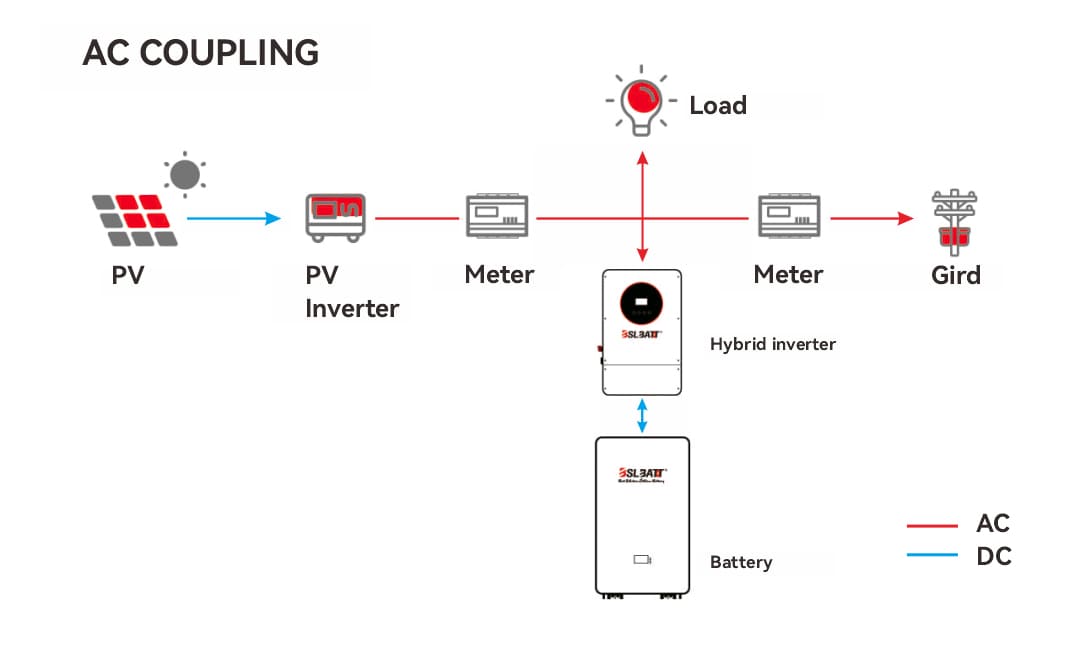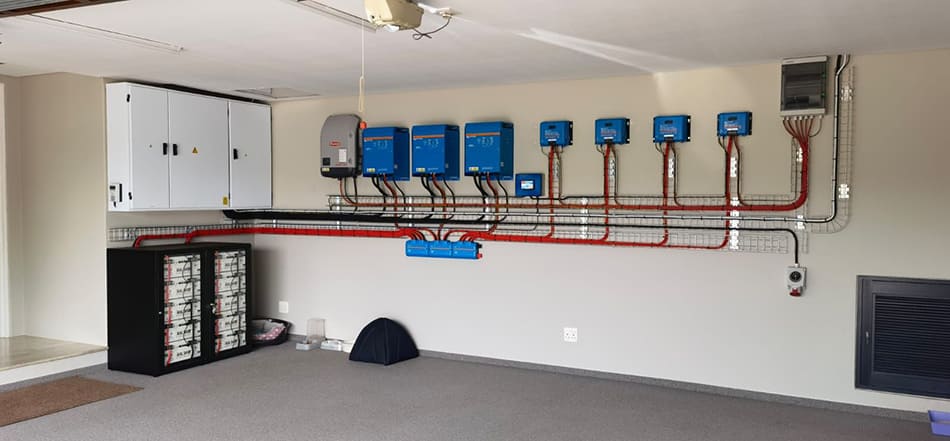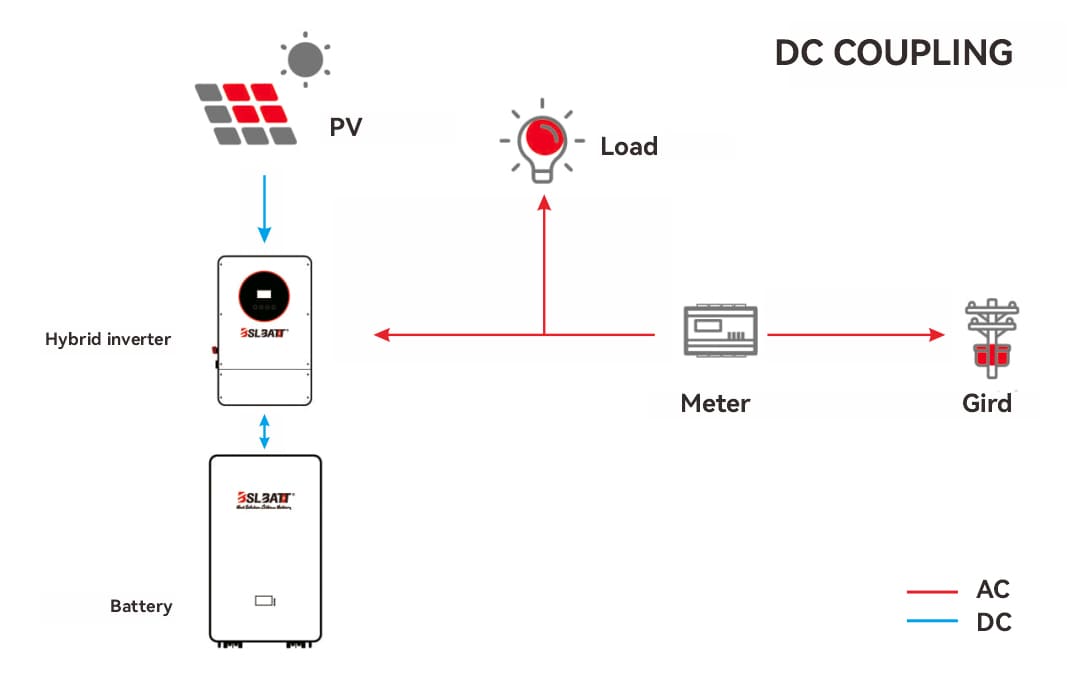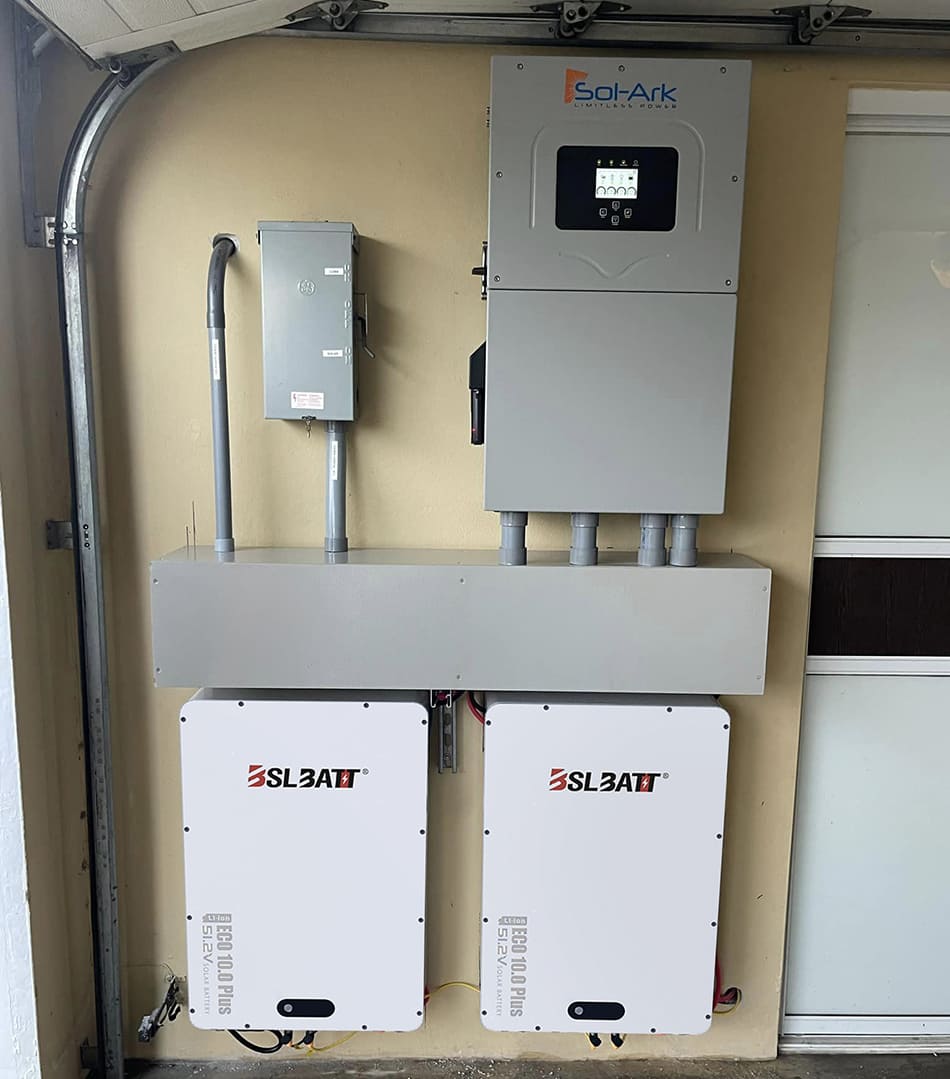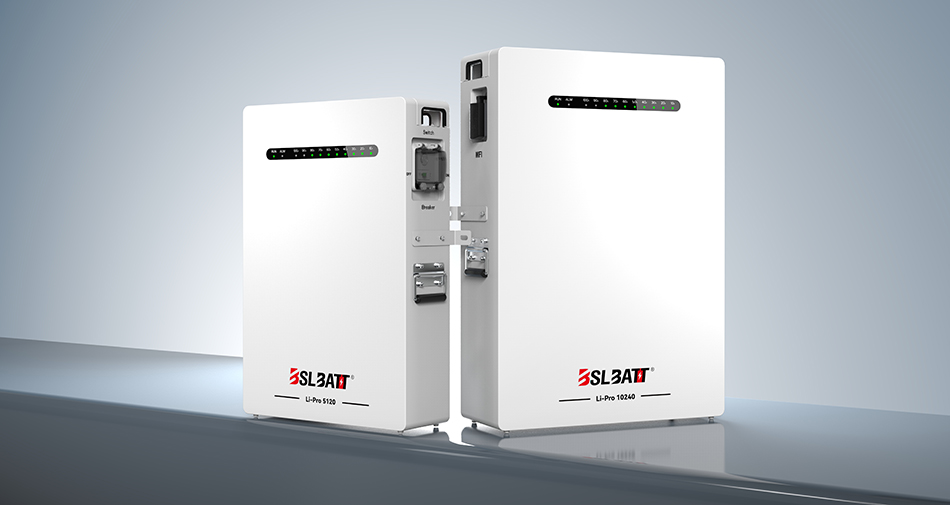Have you ever wondered how to maximize the efficiency of your solar power system? The secret may lie in how you couple your batteries. When it comes to solar energy storage, there are two main options: AC coupling and DC coupling. But what exactly do these terms mean, and which one is right for your setup?
In this post, we’ll dive into the world of AC vs DC coupled battery systems, exploring their differences, advantages, and ideal applications. Whether you’re a solar newbie or an experienced energy enthusiast, understanding these concepts can help you make smarter decisions about your renewable energy setup. So let’s shed some light on AC and DC coupling – your path to energy independence may depend on it!
Main Takeaways :
- AC coupling is easier to retrofit to existing solar systems, while DC coupling is more efficient for new installations.
- DC coupling typically offers 3-5% higher efficiency than AC coupling.
- AC coupled systems provide more flexibility for future expansion and grid integration.
- DC coupling performs better in off-grid applications and with DC-native appliances.
- The choice between AC and DC coupling depends on your specific situation, including existing setup, energy goals, and budget.
- Both systems contribute to energy independence and sustainability, with AC coupled systems reducing grid reliance by an average of 20%.
- Consult with a solar professional to determine the best option for your unique needs.
- Regardless of choice, battery storage is becoming increasingly important in the renewable energy landscape.
AC Power and DC Power
Usually what we call DC, means direct current, electrons flow straight, moving from positive to negative; AC stands for alternating current, different from DC, its direction changes with time, AC can transmit power more efficiently, so it is applicable to our daily life in household appliances. The electricity produced through photovoltaic solar panels is basically DC, and the energy is also stored in the form of DC in the solar energy storage system.
What is AC Coupling Solar System?
Now that we’ve set the stage, let’s dive into our first topic – AC coupling. What exactly is this mysterious term all about?
AC coupling refers to a battery storage system where the solar panels and batteries are connected on the alternating current (AC) side of the inverter. We now know that photovoltaic systems produce DC electricity, but we need to convert it to AC electricity for commercial and home appliances, and this is where AC coupled battery systems are important. If you use an AC-coupled system, then you need to add a new battery inverter system between the solar battery system and the PV inverter. The battery inverter can support the conversion of DC and AC power from the solar batteries, so the solar panels do not have to be connected directly to the storage batteries, but first contact the inverter connected to the batteries. In this setup:
- Solar panels generate DC electricity
- A solar inverter converts it to AC
- AC power then flows to home appliances or the grid
- Any excess AC power is converted back to DC to charge the batteries
But why go through all those conversions? Well, AC coupling has some key advantages:
- Easy retrofitting: It can be added to existing solar systems without major changes
- Flexibility: Batteries can be placed farther from solar panels
- Grid charging: Batteries can charge from both solar and the grid
AC coupled battery storage systems are popular for residential installations, especially when adding storage to an existing solar array. For example, the Tesla Powerwall is a well-known AC coupled battery that can be easily integrated with most home solar setups.
AC Coupling Solar System Installation Case
However, those multiple conversions do come at a cost – AC coupling is typically 5-10% less efficient than DC coupling. But for many homeowners, the ease of installation outweighs this small efficiency loss.
So in what situations might you choose AC coupling? Let’s explore some scenarios…
What is DC Coupling Solar Sytem?
Now that we understand AC coupling, you might be wondering – what about its counterpart, DC coupling? How does it differ, and when might it be the better choice? Let’s explore DC coupled battery systems and see how they stack up.
DC coupling is an alternative approach where solar panels and batteries are connected on the direct current (DC) side of the inverter. The solar batteries can be connected directly to the PV panels, and the energy from the storage battery system is then transferred to individual home appliances via a hybrid inverter, eliminating the need for additional equipment between the solar panels and the storage batteries.Here’s how it works:
- Solar panels generate DC electricity
- DC power flows directly to charge the batteries
- A single inverter converts DC to AC for home use or grid export
This more streamlined setup offers some distinct advantages:
- Higher efficiency: With fewer conversions, DC coupling is typically 3-5% more efficient
- Simpler design: Fewer components mean lower costs and easier maintenance
- Better for off-grid: DC coupling excels in standalone systems
Popular DC coupled batteries include the BSLBATT MatchBox HVS and BYD Battery-Box. These systems are often favored for new installations where maximum efficiency is the goal.
DC Coupling Solar System Installation Case
But how do the numbers stack up in real-world use? A study by the National Renewable Energy Laboratory found that DC coupled systems can harvest up to 8% more solar energy annually compared to AC coupled systems. This can translate to significant savings over the life of your system.
So when might you opt for DC coupling? It’s often the go-to choice for:
- New solar + storage installations
- Off-grid or remote power systems
- Large-scale commercial or utility projects
However, DC coupling isn’t without its drawbacks. It can be more complex to retrofit to existing solar arrays and may require replacing your current inverter.
Key Differences Between AC and DC Coupling
Now that we’ve explored both AC and DC coupling, you might be wondering – how do they really compare? What are the key factors to consider when choosing between these two approaches? Let’s break down the main differences:
Efficiency:
How much energy are you actually getting from your system? This is where DC coupling shines. With fewer conversion steps, DC coupled systems typically boast 3-5% higher efficiency than their AC counterparts.
Installation Complexity:
Are you adding batteries to an existing solar setup or starting from scratch? AC coupling takes the lead for retrofits, often requiring minimal changes to your current system. DC coupling, while more efficient, may necessitate replacing your inverter—a more complex and costly process.
Compatibility:
What if you want to expand your system later? AC coupled battery storage systems offer greater flexibility here. They can work with a wider range of solar inverters and are easier to scale up over time. DC systems, while powerful, can be more limited in their compatibility.
Power Flow:
How does electricity move through your system? In AC coupling, power flows through multiple conversion stages. For example:
- DC from solar panels → converted to AC (via solar inverter)
- AC → converted back to DC (to charge battery)
- DC → converted to AC (when using stored energy)
DC coupling simplifies this process, with just one conversion from DC to AC when using stored energy.
System Costs:
What’s the bottom line for your wallet? Initially, AC coupling often has lower upfront costs, especially for retrofits. However, the higher efficiency of DC systems can lead to greater long-term savings. A 2019 study by the National Renewable Energy Laboratory found that DC coupled systems could reduce the levelized cost of energy by up to 8% compared to AC coupled systems.
As we can see, both AC and DC coupling have their strengths. But which one is right for you? The best choice depends on your specific situation, goals, and existing setup. In the next sections, we’ll dive deeper into the specific advantages of each approach to help you make an informed decision.
Advantages of AC Coupled Systems
Now that we’ve examined the key differences between AC and DC coupling, you might be wondering – what are the specific advantages of AC coupled systems? Why might you choose this option for your solar setup? Let’s explore the benefits that make AC coupling a popular choice for many homeowners.
Easier retrofitting to existing solar installations:
Do you already have solar panels installed? AC coupling could be your best bet. Here’s why:
No need to replace your existing solar inverter
Minimal disruption to your current setup
Often more cost-effective for adding storage to an existing system
For example, a study by the Solar Energy Industries Association found that over 70% of residential battery installations in 2020 were AC coupled, largely due to the ease of retrofitting.
Greater flexibility in equipment placement:
Where should you put your batteries? With AC coupling, you have more options:
- Batteries can be located farther from solar panels
- Less constrained by DC voltage drop over long distances
- Ideal for homes where the optimal battery location isn’t near the solar inverter
This flexibility can be crucial for homeowners with limited space or specific layout requirements.
Potential for higher power output in certain scenarios:
While DC coupling is generally more efficient, AC coupling can sometimes deliver more power when you need it most. How?
- Solar inverter and battery inverter can work simultaneously
- Potential for higher combined power output during peak demand
- Useful for homes with high instantaneous power needs
For instance, a 5kW solar system with a 5kW AC coupled battery could potentially deliver up to 10kW of power at once—more than many DC coupled systems of similar size.
Simplified grid interaction:
AC coupled systems often integrate more seamlessly with the grid:
- Easier compliance with grid interconnection standards
- Simpler metering and monitoring of solar production vs battery use
- More straightforward participation in grid services or virtual power plant programs
A 2021 report by Wood Mackenzie found that AC coupled systems accounted for over 80% of residential battery installations participating in utility demand response programs.
Resilience during solar inverter failures:
What happens if your solar inverter fails? With AC coupling:
- Battery system can continue to operate independently
- Maintain backup power even if solar production is interrupted
- Potentially less downtime during repairs or replacements
This added layer of resilience can be crucial for homeowners relying on their battery for backup power.
As we can see, AC coupled battery storage systems offer significant advantages in terms of flexibility, compatibility, and ease of installation. But are they the right choice for everyone? Let’s move on to explore the benefits of DC coupled systems to help you make a fully informed decision.
Advantages of DC Coupled Systems
Now that we’ve explored the benefits of AC coupling, you might be wondering – what about DC coupling? Does it have any advantages over its AC counterpart? The answer is a resounding yes! Let’s dive into the unique strengths that make DC coupled systems an attractive option for many solar enthusiasts.
Higher overall efficiency, especially for new installations:
Remember how we mentioned that DC coupling involves fewer energy conversions? This translates directly into higher efficiency:
- Typically 3-5% more efficient than AC coupled systems
- Less energy lost in conversion processes
- More of your solar power makes it to your battery or home
A study by the National Renewable Energy Laboratory found that DC coupled systems can capture up to 8% more solar energy annually compared to AC coupled systems. Over the lifetime of your system, this can add up to significant energy savings.
Simpler system design with fewer components:
Who doesn’t love simplicity? DC coupled systems often have a more streamlined design:
- Single inverter handles both solar and battery functions
- Fewer points of potential failure
- Often easier to diagnose and maintain
This simplicity can lead to lower installation costs and potentially fewer maintenance issues down the road. A 2020 report by GTM Research found that DC coupled systems had 15% lower balance-of-system costs compared to equivalent AC coupled systems.
Better performance in off-grid applications:
Planning to go off the grid? DC coupling might be your best bet:
- More efficient in standalone systems
- Better suited for direct DC loads (like LED lighting)
- Easier to design for 100% solar self-consumption
The International Energy Agency reports that DC coupled systems are used in over 70% of off-grid solar installations worldwide, thanks to their superior performance in these scenarios.
Potential for higher charging speeds:
In a race to charge your battery, DC coupling often takes the lead:
- Direct DC charging from solar panels is typically faster
- No conversion losses when charging from solar
- Can make better use of peak solar production period
In areas with short or unpredictable sunlight, DC coupling allows you to maximize your solar harvesting, ensuring optimal energy use during peak production times.
Future-Proofing for Emerging Technologies
As the solar industry evolves, DC coupling is well-positioned to adapt to future innovations:
- Compatible with DC-native appliances (an emerging trend)
- Better suited for electric vehicle charging integration
- Aligns with the DC-based nature of many smart home technologies
Industry analysts predict that the market for DC-native appliances will grow by 25% annually over the next five years, making DC coupled systems even more attractive for future technologies.
Is DC Coupling the Clear Winner?
Not necessarily. While DC coupling offers significant benefits, the best option still depends on your specific situation. In the next section, we’ll explore how to choose between AC and DC coupling based on your unique needs.
BSLBATT DC Coupled Battery Storage
Choosing Between AC and DC Coupling
We’ve covered the advantages of both AC and DC coupling, but how do you decide which one is right for your solar setup? Here are the key factors to consider when making this important decision:
What’s Your Current Situation?
Are you starting from scratch or adding to an existing system? If you already have solar panels installed, AC coupling might be the best choice since it’s generally easier and more cost-effective to retrofit an AC-coupled battery storage system to an existing solar array.
What Are Your Energy Goals?
Are you aiming for maximum efficiency or ease of installation? DC coupling offers higher overall efficiency, leading to greater energy savings over time. However, AC coupling is often simpler to install and integrate, especially with existing systems.
How Important Is Future Expandability?
If you anticipate expanding your system over time, AC coupling typically offers more flexibility for future growth. AC systems can work with a wider range of components and are easier to scale as your energy needs evolve.
What’s Your Budget?
While costs vary, AC coupling often has lower upfront costs, especially for retrofits. However, the higher efficiency of DC systems could result in greater long-term savings. Have you considered the total cost of ownership over the system’s lifetime?
Are You Planning to Go Off-Grid?
For those seeking energy independence, DC coupling tends to perform better in off-grid applications, especially when direct DC loads are involved.
What About Local Regulations?
In some regions, regulations might favor one system type over the other. Check with local authorities or a solar expert to ensure you’re compliant with any restrictions or eligible for incentives.
Remember, there’s no one-size-fits-all answer. The best choice depends on your circumstances, goals, and current setup. Consulting with a solar professional can help you make the most informed decision.
Conclusion: The Future of Home Energy Storage
We’ve navigated through the world of AC and DC coupling systems. So, what have we learned? Let’s recap the main differences:
- Efficiency: DC coupling typically offers 3-5% higher efficiency.
- Installation: AC coupling excels for retrofits, while DC is better for new systems.
- Flexibility: AC-coupled systems provide more options for expansion.
- Off-grid performance: DC coupling leads in off-grid applications.
These differences translate into real-world impacts on your energy independence and savings. For example, homes with AC-coupled battery systems saw an average 20% reduction in grid reliance compared to solar-only homes, according to a 2022 report by the Solar Energy Industries Association.
Which system is right for you? It depends on your situation. If you’re adding to an existing solar array, AC coupling might be ideal. Starting fresh with plans to go off-grid? DC coupling could be the way to go.
The most important takeaway is that, whether you choose AC or DC coupling, you’re moving towards energy independence and sustainability—goals we should all strive for.
So, what’s your next move? Will you consult with a solar professional or dive deeper into the technical specifications of battery systems? Whatever you choose, you’re now equipped with the knowledge to make an informed decision.
Looking forward, battery storage—whether AC or DC coupled—is set to play an increasingly vital role in our renewable energy future. And that’s something to get excited about!
FAQ About AC and DC Coupled System
Q1: Can I mix AC and DC coupled batteries in my system?
A1: While possible, it’s generally not recommended due to potential efficiency losses and compatibility issues. Best to stick with one method for optimal performance.
Q2: How much more efficient is DC coupling compared to AC coupling?
A2: DC coupling is typically 3-5% more efficient, translating to significant energy savings over the system’s lifetime.
Q3: Is AC coupling always easier to retrofit to existing solar systems?
A3: Generally, yes. AC coupling usually requires fewer changes, making it simpler and often more cost-effective for retrofits.
Q4: Are DC coupled systems better for off-grid living?
A4: Yes, DC coupled systems are more efficient in standalone applications and better suited for direct DC loads, making them ideal for off-grid setups.
Q5: Which coupling method is better for future expansion?
A5: AC coupling offers more flexibility for future expansion, compatible with a wider range of components and easier to scale up.
Post time: May-08-2024









